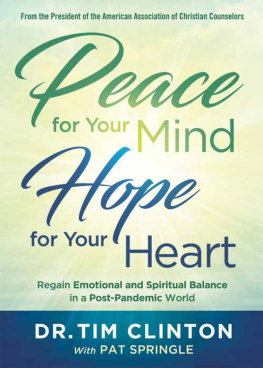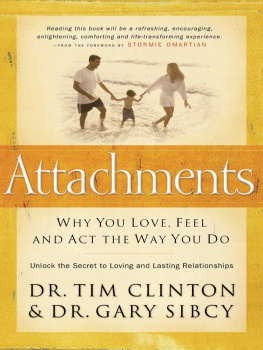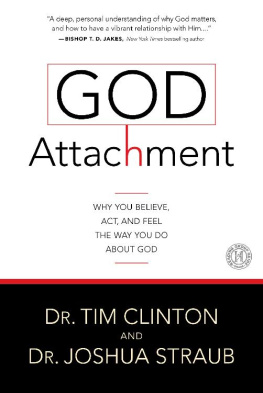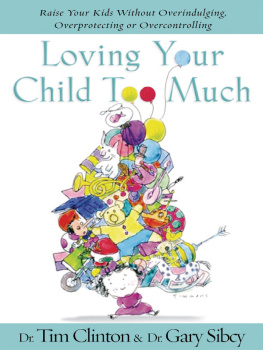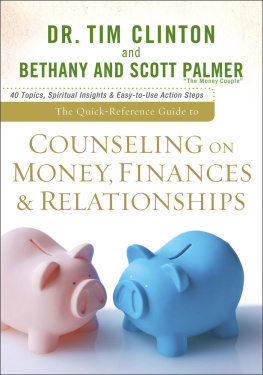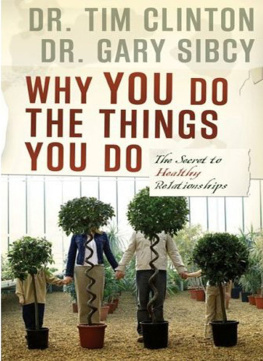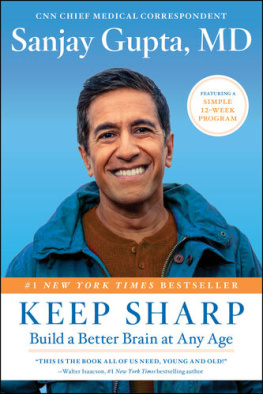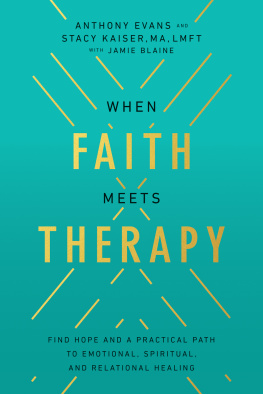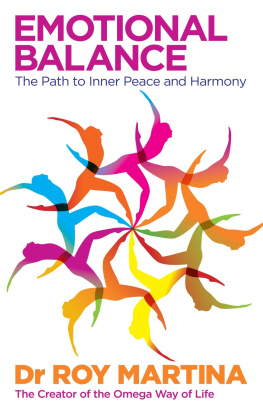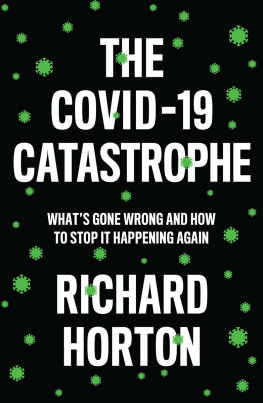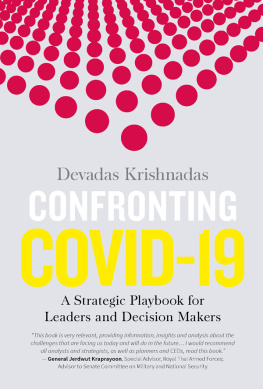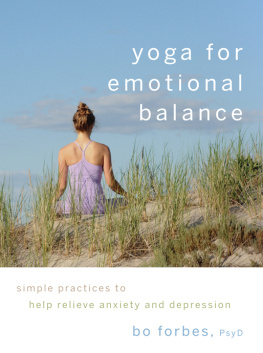Most Charisma House Book Group products are available at special quantity discounts for bulk purchase for sales promotions, premiums, fund-raising, and educational needs. For details, call us at (407) 333-0600 or visit our website at www.charismahouse.com.
PEACE FOR YOUR MIND, HOPE FOR YOUR HEART
by Tim Clinton
Published by Charisma House
Charisma Media/Charisma House Book Group
600 Rinehart Road, Lake Mary, Florida 32746
This book or parts thereof may not be reproduced in any form, stored in a retrieval system, or transmitted in any form by any meanselectronic, mechanical, photocopy, recording, or otherwisewithout prior written permission of the publisher, except as provided by United States of America copyright law.
Unless otherwise noted, all Scripture quotations are taken from the Holy Bible, New International Version, NIV. Copyright 1973, 1978, 1984, 2011 by Biblica, Inc. Used by permission of Zondervan. All rights reserved worldwide. www.zondervan.com. The NIV and New International Version are trademarks registered in the United States Patent and Trademark Office by Biblica, Inc.
Scripture quotations marked KJV are from the King James Version of the Bible.
Copyright 2020 by Tim Clinton
All rights reserved
Visit the authors website at timclinton.com.
Library of Congress Cataloging-in-Publication Data:
An application to register this book for cataloging has been submitted to the Library of Congress.
International Standard Book Number: 978-1-62999-921-0
E-book ISBN: 978-1-62999-922-7
People and names in this book are composites created by the author from his experiences as a counselor and life coach. Names and details of their stories have been changed, and any similarity between the names and stories of individuals described in this book and individuals known to readers is purely coincidental.
While the author has made every effort to provide accurate internet addresses at the time of publication, neither the publisher nor the author assumes any responsibility for errors or for changes that occur after publication. Further, the publisher does not have any control over and does not assume any responsibility for author or third-party websites or their content.
Anxiety does not empty tomorrow of its sorrows, but only empties today of its strength.
CHARLES SPURGEON
My life has suddenly started to feel like it is spiraling out of control.... The uncertainty of whats ahead has become the most frightening thing, triggering fear and anxiety . The world has been brought to its knees by a tiny microorganism.... My goal is to do whats in my power to reduce the spread of the virus and to survive . I surrender what I cant control to chance, fate, or the mercy of God .
A NEW YORK RESIDENT, IN RESPONSE TO THE COVID-19 PANDEMIC
ITS A WORD weve been hearing a lot lately, a word that invokes a sense of dread... fear... anxiety. It alerts us to a severe, widespread, and growing danger over which we have little if any control. As the pandemic has spread, so has the national level of anxiety. Every day we tune in to the news and watch the number of cases, deaths, and hot spots rise. Its consuming and alarming. Most are overdosing on what has been happening, and its driving us insane. My wife, Julie, looked at me while watching a press briefing and said, Ive got to turn this off for a while. Its making me crazy!
Weve had other recent national crises, of course, but none that seem to have had the same degree of devastation that this pandemic has created. Perhaps the best comparison we have is the Great Depression that began in 1929. Weve heard grandparents or great-grandparents reminisce about the ravages of unemployment, food shortages, the year dry winds blew 850 million tons of soil of the southern plains to the east coast, and a pervasive sense of hopelessness, but that seems like ancient history.
However, most of us remember the Y2K (year 2000) scare. During the late 1990s, computer programmers realized that their shortcut of using only the last two digits of the year when storing a date might create problems when every computer in the world changed from year 99 to year 00. What would happen? Would the computer date register as 1900? Or not at all? The cover of Time magazine early in 1999 asked, The End of the World!?! and prompted a year of rampant speculation.
Computer programmers got a good jump on resolving the Y2K issue, but as the millennium approached, public anxiety created a growing sense of alarm. People feared that prisons might erroneously release dangerous criminals; malfunctioning traffic lights could cause a plague of car accidents; planes might fall out of the sky; nuclear power plants could go offline and create dozens of Chernobyls. People began to hoard cash, fearing that bank records might become unreliable. But despite all the worst-case scenarios, the year 2000 rolled in with only a few minor technological glitches.
Less than two years later, however, the United States suffered a much more severe and lasting crisis. The September 11 attacks on the Pentagon and World Trade Center towers in 2001 came without warning, and the public instantly realized that life as they had known it would never be the same. Although it didnt take too long to figure out who was behind the attacks and what response was appropriate, the anxiety level that spiked that day has stayed with us. In the aftermath most of us were convinced that our American resolve would see us through the crisis eventually. Still, we had seen what could happen if we drop our guard, so we started viewing other people with suspicion. Even today, every time we go through security checkpoints at airports or other places, were subconsciously reminded of potential danger.
But now, the COVID-19 pandemic has left us reeling in unprecedented ways. Unlike the Y2K scare, we had little if any time to prepare to respond to this crisis. And unlike the 9-11 attacks, we lack sufficient facts to construct a quick and effective response. Early on, health experts were predicting that by the time the coronavirus runs its course, essentially everyone in America will personally know someone who died from it. While our scientists fervently work to create a vaccine and produce reliable testing that can be administered and evaluated quickly, our health-care workers struggle to try to keep the death toll from rising so rapidly.
New York Times columnist David Brooks recently asked readers to write in and describe their mental health during their time of isolation. He wrote that he was expecting maybe some jaunty stories about families pulling together in a crisis. One was used at the beginning of this chapter. Here are a few others:
I am normally a very positive person, outgoing, happy, energetic. Definitely a glass half-full. However, lately I cannot get through a day without tears, often sobs. I am terrified for myself and my family and everyone in the world. All the things I love to do, Im now afraid to do.
I am overwhelmed some days with a sense of loss, particularly because I have not seen my grandchildren (three years old and ten months). My husband and I were their primary babysitters... We had them with us for ten hours most days of the week.... I miss their touch, their smell, their drool, their runny noses. We will miss Easter, my birthday and, in all likelihood, the babys first birthday in May. I am angry at a force I cannot see, but more than anything, I am sad and aching to squeeze them again.
As a mother of three who has struggled with anxiety and depression before the coronavirus, this current situation has definitely magnified these issues and brought them to the surface.... My children have seen me cry and heard me scream more in these past few weeks than they have in their whole lives. I just pray they are young enough to not remember.

